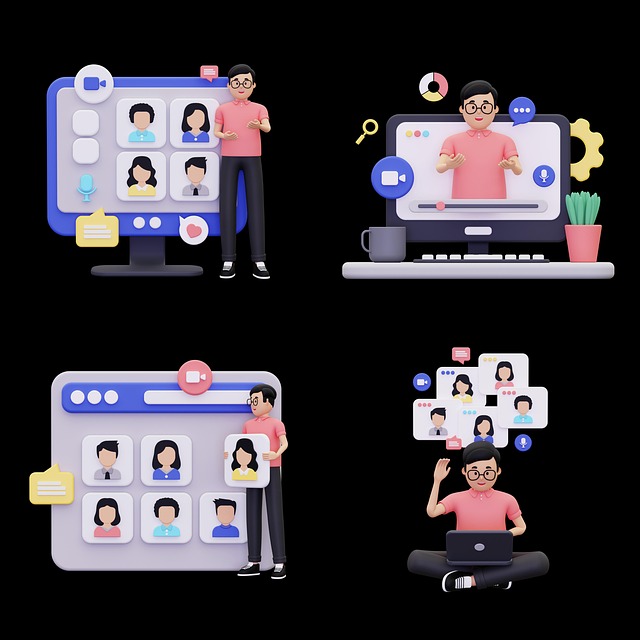Virtual couples counseling has become a popular and accessible option in today's digital age, offering couples remote support for relationship issues. Through video conferencing, live chat, or text messaging, this approach allows open communication and rebuilds trust despite physical distance. While challenges like missing non-verbal cues and technical issues exist, effective communication techniques and adapted counseling methods can overcome these obstacles. By using technology to facilitate active listening, clear messaging, and structured assessments, virtual couples counseling can successfully improve communication, emotional intimacy, and conflict resolution skills.
In today’s digital era, virtual couples counseling has emerged as a game-changer, offering accessible and convenient support for relationships in need of repair. As more couples seek help online, understanding how to rebuild trust virtually becomes essential. This article explores the rise of digital counseling, delves into overcoming barriers to trust-building in remote settings, provides strategies for effective virtual communication, and discusses measuring the success of online therapy in restoring relationship bonds. Discover key insights into enhancing connections despite physical distance.
- The Rise of Virtual Couples Counseling: Adapting to Digital Times
- Overcoming Barriers: Building Trust in a Remote Setting
- Strategies for Effective Virtual Communication and Connection
- Measuring Success: Evaluating the Impact of Online Therapy on Trust Restoration
The Rise of Virtual Couples Counseling: Adapting to Digital Times

In today’s digital era, the rise of virtual couples counseling has been a game-changer in the field of relationship support. With the limitations imposed by physical distances and busy schedules, many couples are turning to online platforms for help. The demand for couples counseling virtual sessions is higher than ever, offering accessibility and convenience like never before. This shift towards digital times allows partners to seek guidance from the comfort of their homes, breaking down traditional barriers.
Virtual counseling provides a safe and secure environment where couples can openly discuss their issues without the pressure of face-to-face interactions. Through video conferencing, live chat, or even text messaging, therapists can facilitate effective communication and help partners navigate through challenges. This innovative approach not only ensures better accessibility but also promotes a more intimate setting, fostering honest conversations and, ultimately, rebuilding trust in relationships.
Overcoming Barriers: Building Trust in a Remote Setting

In the realm of couples counseling, the shift to virtual sessions has presented both opportunities and challenges. Overcoming barriers to trust-building in a remote setting requires intentional strategies to foster connection and intimacy despite physical distance. The lack of non-verbal cues, which are crucial for conveying empathy and understanding, demands that counselors and couples adapt their communication methods.
Virtual counseling offers unique advantages like increased accessibility and flexibility but also brings forth obstacles like technical issues, distractions, and a diminished sense of presence. However, by employing creative techniques such as active listening, clear and consistent communication, and utilizing video conferencing tools effectively, counselors can help couples navigate these challenges. Through these efforts, the virtual environment can become a space where trust is rebuilt, stronger than before, even if it looks different from traditional in-person sessions.
Strategies for Effective Virtual Communication and Connection

In the realm of couples counseling virtual, effective communication is key to rebuilding trust in a remote setting. Since non-verbal cues are often missed or misinterpreted online, it’s crucial for partners to actively engage in open and honest dialogue. Active listening, where each partner takes turns speaking while the other fully focuses on understanding their perspective, can strengthen emotional connections despite physical distance. Additionally, establishing clear communication goals, such as discussing specific issues or practicing empathy, ensures sessions are productive and focused.
Utilizing technology to its fullest potential is another strategy for virtual couples counseling. Video conferencing platforms allow for visual cues and real-time reactions, fostering a more intimate atmosphere. Incorporating icebreakers or fun activities into sessions can also lighten the mood and create opportunities for deeper conversations. Shared screens for joint activities like relationship check-ins or setting shared goals enhance collaboration and solidarity, helping to rebuild trust in a meaningful way.
Measuring Success: Evaluating the Impact of Online Therapy on Trust Restoration

Measuring Success: Evaluating the Impact of Online Therapy on Trust Restoration
In the realm of couples counseling, the shift to virtual sessions has presented both opportunities and challenges, particularly when it comes to rebuilding trust. As more couples opt for online therapy due to its accessibility and convenience, understanding the effectiveness of this approach is crucial. The success of virtual counseling can be gauged by assessing the impact on various aspects of trust restoration. This includes evaluating communication patterns, emotional intimacy, and conflict resolution skills, all of which play a pivotal role in mending broken relationships.
Through structured assessments and regular feedback, therapists can objectively measure progress. Pre- and post-session surveys, for instance, can capture changes in trust levels, with specific questions targeting areas like comfort sharing personal details, confidence in partner’s honesty, and perceived safety in vulnerability. By comparing these metrics, professionals gain valuable insights into the positive effects of online therapy, enabling them to tailor interventions and ensure a more successful journey towards rebuilding trust in virtual couples counseling.
As the digital landscape continues to shape our personal connections, virtual couples counseling has emerged as a powerful tool for rebuilding trust. Overcoming barriers in remote settings is achievable through effective communication strategies and tailored interventions. By measuring success through evaluative metrics, online therapy can effectively restore trust between partners, offering a convenient and accessible solution for modern relationships. The rise of virtual counseling underscores the adaptability of human connection in an increasingly digital world.






